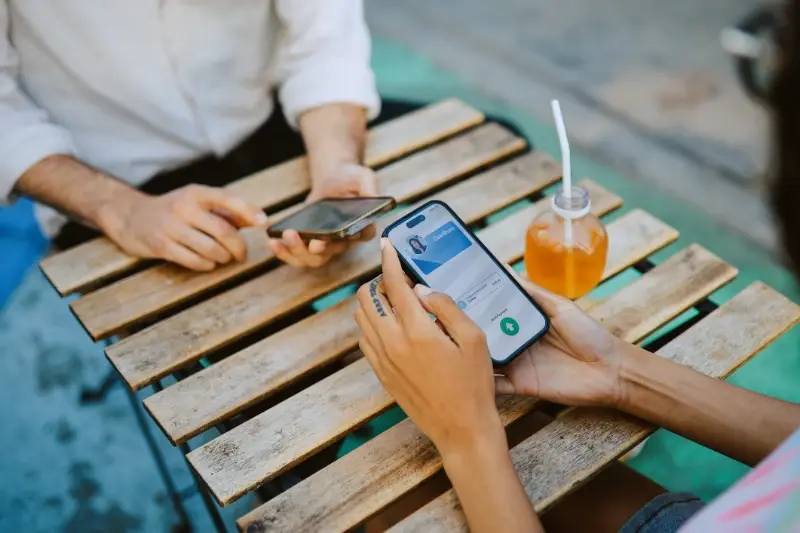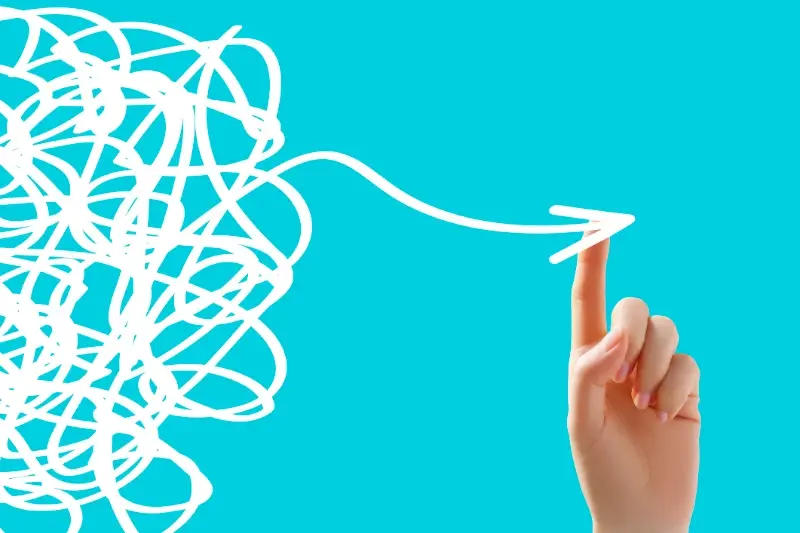How To Build Trust With Your Remote App Development Team
Nearly 70% of mobile app development projects fail because of poor team relationships—not technical problems. That's right, the biggest threat to your app isn't coding bugs or design flaws; it's the breakdown of trust between you and your development team. When you're working with a remote team, this challenge becomes even more complex because you can't simply pop over to their desk for a quick chat or read their body language during meetings.
Building trust with a remote mobile app development team isn't just about being polite in emails or paying invoices on time. It's about creating genuine collaboration success that makes everyone feel valued and heard. The good news? It's completely achievable once you know what to focus on.
Trust is the glue that holds remote teams together when everything else feels uncertain
Over the years, I've watched countless client relationships flourish or crumble based on how well trust was established from the start. The teams that get it right don't just deliver better apps—they actually enjoy the process. They communicate openly, solve problems together, and create something both sides are proud of. The secret isn't complicated, but it does require intentional effort from day one.
Set Clear Expectations From Day One
I've worked with remote development teams for years now, and I can tell you that most project disasters happen within the first week—not because the team lacks skill, but because nobody took the time to set proper expectations. It's like starting a football match without telling anyone which goal they're supposed to aim for!
The moment you begin working with a remote app development team, you need to establish the ground rules. This isn't about being bossy; it's about giving everyone the best chance to succeed. Think about response times, working hours, meeting schedules, and how you'll handle changes to the project scope.
What to Cover in Your Initial Setup
- Response time expectations for emails and messages
- Preferred communication channels for different types of discussions
- Meeting frequency and duration preferences
- How project changes will be handled and approved
- Quality standards and testing procedures
- Milestone deadlines and delivery expectations
Don't assume your team knows what you want—spell it out clearly from the start. I've seen brilliant developers struggle simply because they were guessing what the client expected. When everyone knows exactly what's expected of them, they can focus on what they do best: building your app.
Choose The Right Communication Tools
Getting the right communication tools in place can make or break your relationship with your remote mobile app development team. I've worked with teams scattered across different continents and the difference between smooth collaboration and complete chaos often comes down to the tools you choose—and more importantly, how you use them.
The temptation is to use every shiny new communication platform that comes along, but this creates more problems than it solves. Your team ends up checking five different apps just to get their daily updates, and important messages get lost in the noise. Pick your core tools and stick with them.
Core Communication Tools You'll Actually Need
- Instant messaging platform (Slack, Microsoft Teams, or similar) for quick daily chats
- Video calling software for face-to-face meetings and screen sharing
- Project management tool that includes commenting features
- Email for formal communications and external stakeholders
- Shared document platform for collaborative editing and feedback
The key is making sure everyone knows which tool to use for what type of communication. Quick questions go on instant messaging, detailed feedback gets shared through your project management system, and complex discussions happen over video calls. When your team knows exactly where to find information and how to share updates, trust builds naturally because everyone stays in the loop.
Set up dedicated channels for different topics—one for general chat, another for urgent issues, and separate threads for each major feature you're developing. This keeps conversations organised and prevents important updates from getting buried.
Build Personal Connections Beyond Work
Here's something I've learned after working with remote teams for years—you can't build trust with people you don't actually know. I'm not talking about their technical skills or their CV. I mean knowing them as real people with lives, interests, and personalities beyond their job title.
When you're working with a remote app development team, it's tempting to jump straight into project discussions every time you meet. But this approach misses a massive opportunity to build the kind of relationships that make projects run smoothly. Take five minutes at the start of calls to chat about weekend plans or ask how someone's day is going. These small moments add up.
Simple ways to connect with your remote team
The good news is that building personal connections doesn't require grand gestures or complicated team-building exercises. Sometimes the simplest approaches work best:
- Start meetings with casual conversation before diving into work topics
- Share photos of your workspace, pets, or local area during video calls
- Remember personal details they've shared and ask follow-up questions later
- Send congratulations for personal milestones or achievements
- Use informal communication channels for non-work chat
When team members feel comfortable sharing a bit about themselves, they're more likely to speak up about project concerns, suggest improvements, and go the extra mile when deadlines are tight. Trust grows naturally when people see each other as humans first, colleagues second.
Share Your Vision And Project Goals
Here's something I've learned after working with countless remote teams—when everyone understands the bigger picture, magic happens. Your development team isn't just there to code what you tell them to code; they're problem solvers who can offer brilliant solutions if they understand what you're actually trying to achieve.
I can't tell you how many times I've seen mobile app projects go sideways because the client kept their vision close to their chest. The developers end up building exactly what was asked for, but it doesn't solve the real problem. It's like asking someone to build you a hammer when what you really needed was a screwdriver.
Make Your Goals Crystal Clear
Start by explaining why this app needs to exist. Who are your users? What problem are you solving for them? How will success be measured—downloads, revenue, user engagement? When your remote team understands these fundamentals, they can make better decisions about everything from user interface design to technical architecture.
The best mobile app developers I've worked with always ask why before they ask how
Don't just share your goals once and assume everyone remembers them six weeks later. Keep referring back to them during team meetings and project updates. This shared understanding becomes the foundation that strengthens team relationships and drives collaboration success throughout the entire development process.
Give Honest Feedback And Receive It Well
Feedback is the backbone of any successful remote app development project—but let's be honest, it's often the bit that makes everyone a little uncomfortable. Nobody likes telling someone their code needs work, and nobody likes hearing it either. But here's the thing: without proper feedback loops, your project will drift off course faster than you can say "scope creep".
The key is creating an environment where feedback flows both ways. When your remote team shows you their latest designs or features, be specific about what works and what doesn't. Don't just say "I don't like it"—explain why. Maybe the button placement feels awkward, or the colour scheme doesn't match your brand. The more detail you provide, the better they can adjust their approach.
Making Feedback Work Both Ways
Just as you need to give clear feedback, you need to be open to receiving it too. Your remote developers might spot issues with your requirements or suggest better approaches. They're not trying to be difficult—they're trying to build you the best possible app.
- Be specific about what you like and dislike
- Ask questions when you don't understand something
- Listen when your team suggests alternatives
- Stay focused on the project goals, not personal preferences
Remember, feedback isn't criticism—it's collaboration. The sooner you both embrace this mindset, the smoother your project will run.
Respect Different Time Zones And Working Styles
Working with remote teams means you're likely dealing with people scattered across different time zones—and that's actually brilliant for your mobile app project. Your developers in Eastern Europe might be debugging code while you're sleeping, then hand off to designers in Asia who can work on the UI whilst you're having breakfast. It's like having a 24-hour development cycle, but only if you respect everyone's working hours.
I've seen too many project managers schedule "urgent" calls at 6am someone's time or expect immediate responses to messages sent at midnight. That's a trust killer. Instead, use asynchronous communication for most things and save real-time meetings for when they're truly needed. Your team relationships will be much stronger when people feel their personal time is valued.
Some developers are night owls who do their best work after 10pm, others are early birds who prefer morning coding sessions. Rather than forcing everyone into the same schedule, focus on output and deadlines. As long as the mobile app is progressing and your team is hitting milestones, does it really matter if someone prefers working weekends and taking Tuesday off?
Set "core hours" when most team members overlap—even if it's just 2-3 hours—for important discussions and collaboration success.
Track Progress Without Micromanaging
Here's something I've learned the hard way—there's a fine line between staying informed and driving your remote team absolutely mad with constant check-ins. I've seen project managers who ask for updates every few hours, and let me tell you, it doesn't end well for anyone involved.
The secret is setting up systems that give you visibility without making your developers feel like they're being watched through a magnifying glass. Most development teams use project management tools like Jira, Trello, or Asana anyway, so ask for access to these rather than creating separate reporting processes.
Smart Ways to Monitor Progress
Regular demo sessions work brilliantly—schedule them weekly or bi-weekly depending on your project timeline. This way you can see actual working features rather than just reading status reports. Your team gets to show off their work, and you get proper insight into what's happening.
- Weekly demo sessions to see working features
- Access to existing project management tools
- Automated progress reports from development platforms
- Milestone-based check-ins rather than daily updates
Trust me, when developers feel trusted they perform better. Set clear milestones, agree on reporting schedules, then step back and let them work. You'll get better results and maintain much healthier working relationships with your remote team.
Conclusion
Building trust with your remote app development team isn't something that happens overnight—it's a process that requires patience, consistency, and genuine effort from everyone involved. I've worked with countless remote teams over the years, and the ones that succeed are always the ones where trust forms the foundation of everything they do.
The strategies we've covered aren't just nice-to-haves; they're what separate successful mobile app projects from the ones that fall apart halfway through. When you set clear expectations, communicate effectively, and treat your team members as real people rather than just resources, you create an environment where brilliant work can happen. And let's be honest—that's what we all want at the end of the day.
Your remote team relationships will directly impact your collaboration success, which in turn affects the quality of your mobile app. It's all connected. The developer who feels trusted and valued will go the extra mile to solve that tricky bug; the designer who understands your vision will create something that exceeds your expectations. Trust isn't just about making everyone feel good—it's about getting better results. So start implementing these approaches today, be patient with the process, and watch how it transforms not just your project outcomes, but your entire approach to remote collaboration.
Share this
Subscribe To Our Blog
You May Also Like
These Related Stories

7 Proven Strategies for Handling Mobile App Support Requests

The Complete Guide To Mobile App Testing For Non-Technical People





